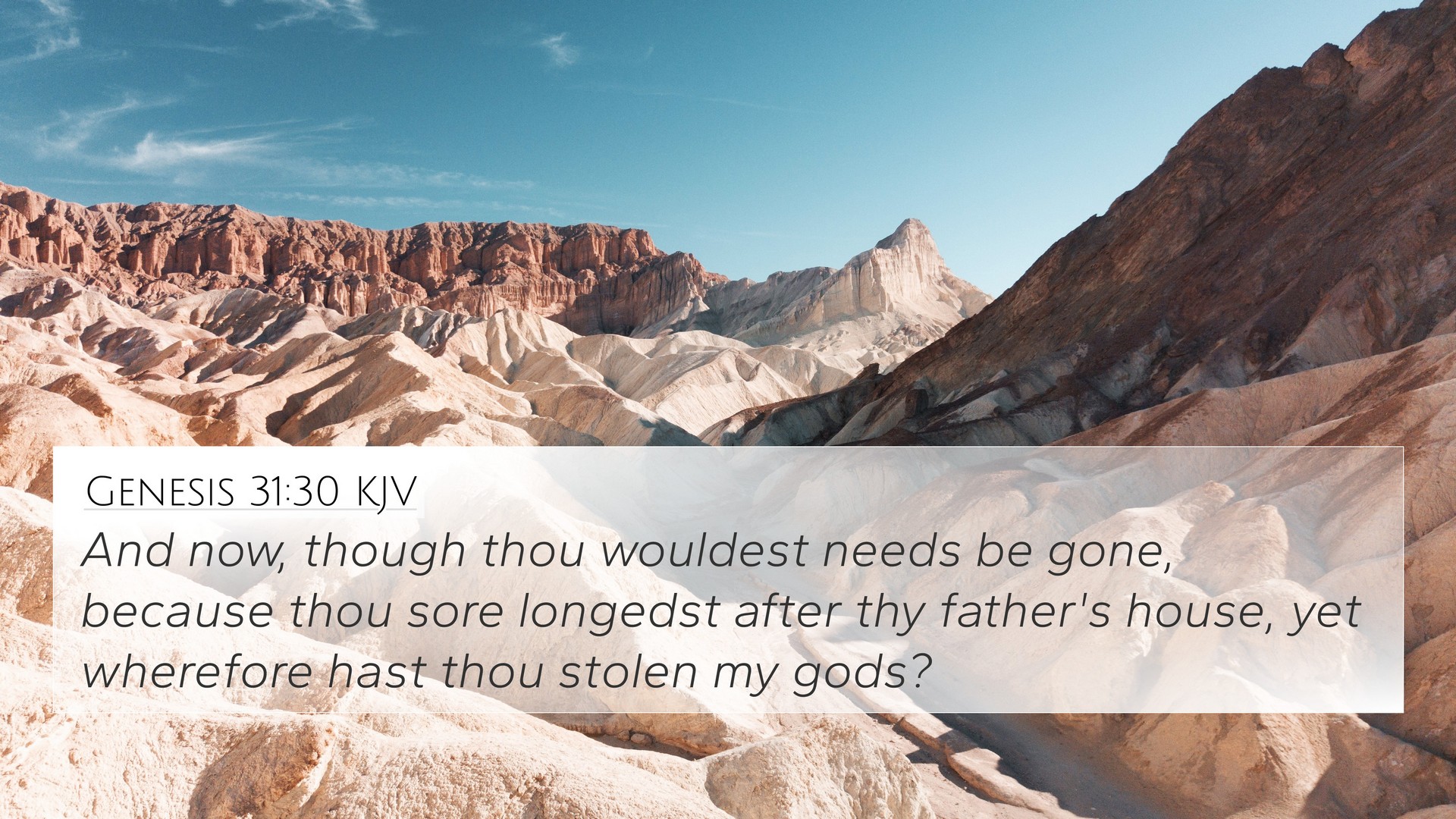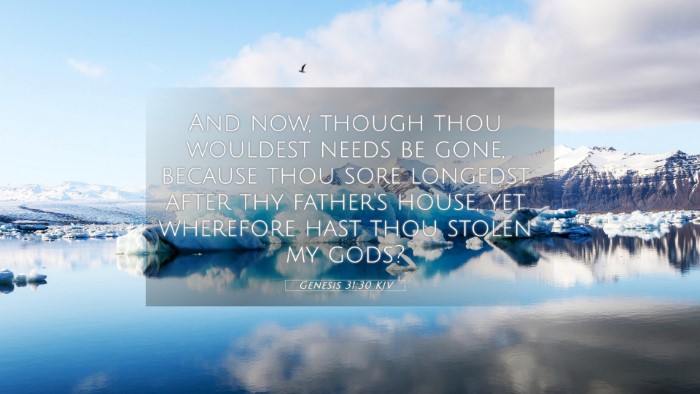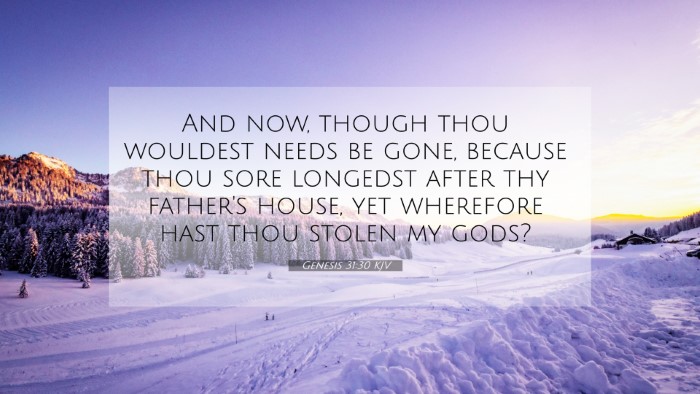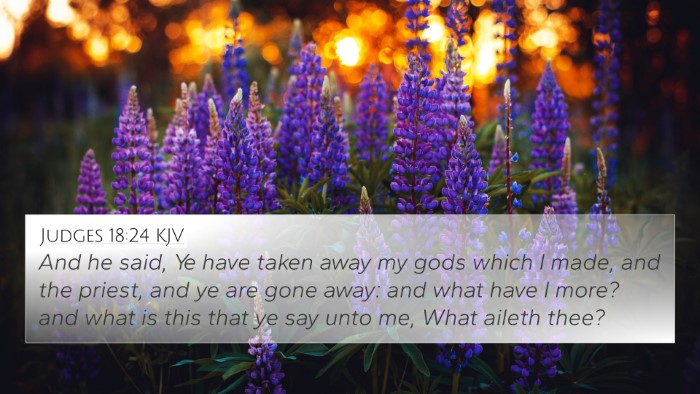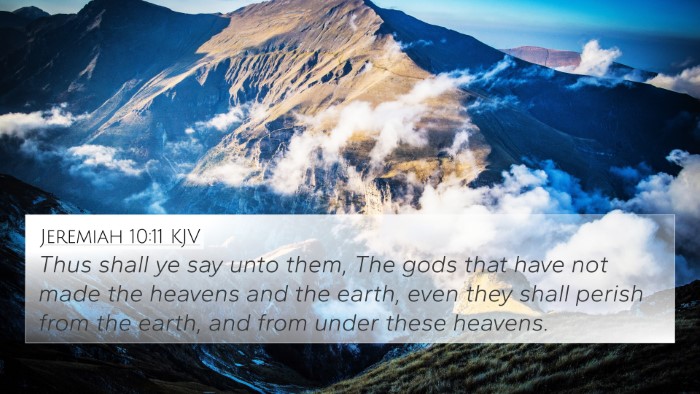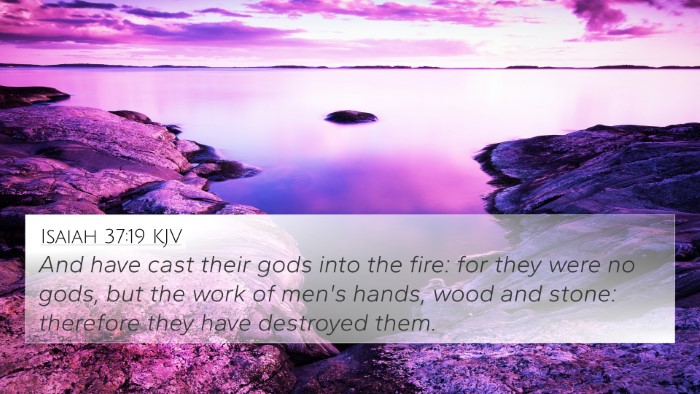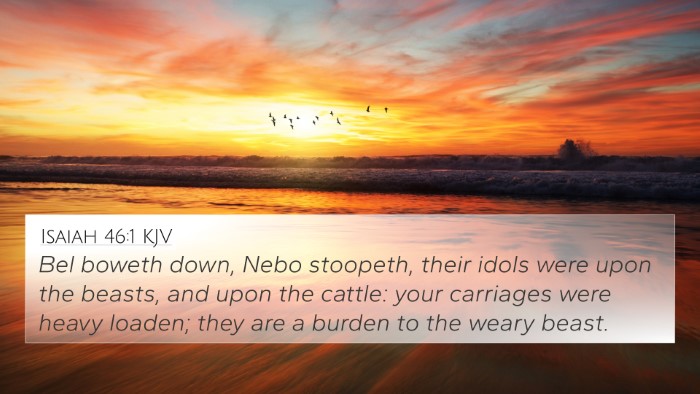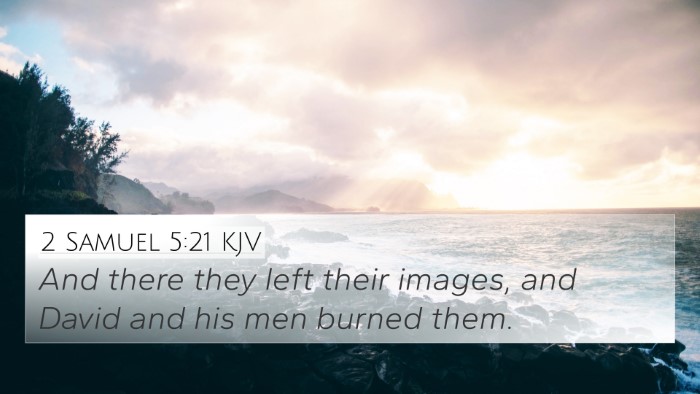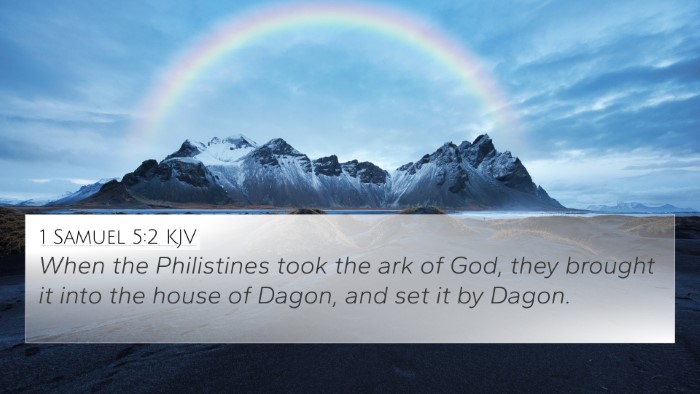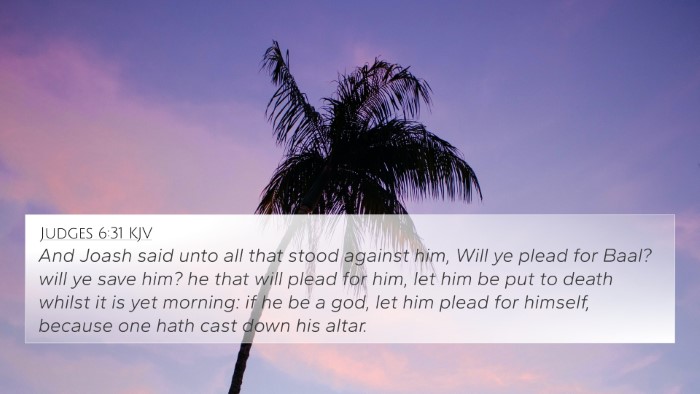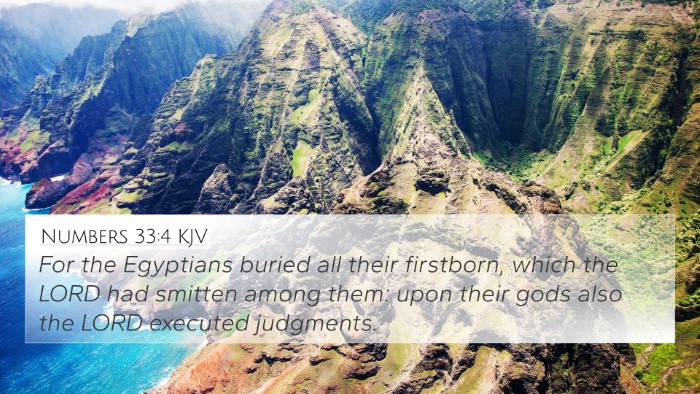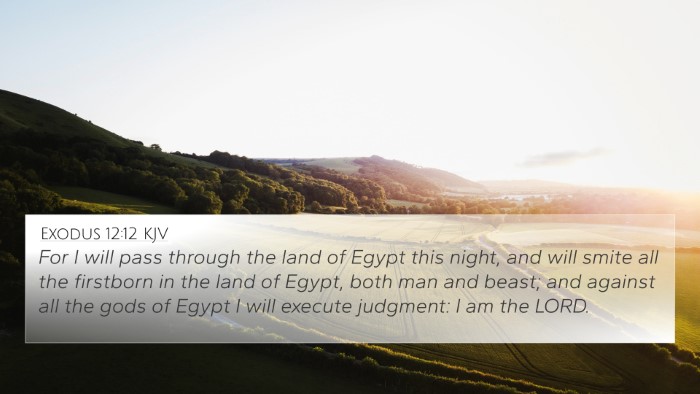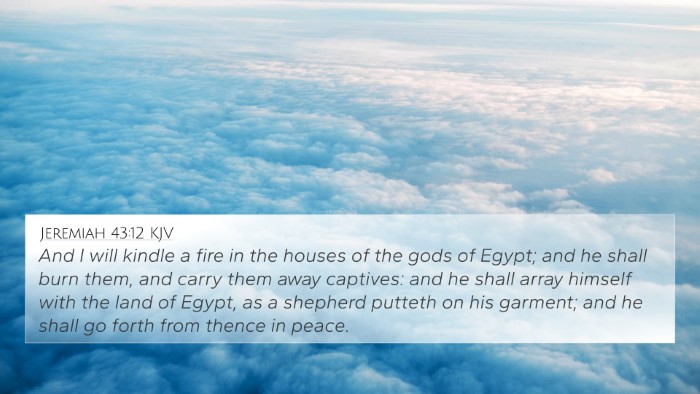Understanding Genesis 31:30
Genesis 31:30 states: "And now, though you would needs be gone, because you sore longed after your father’s house, yet wherefore have you stolen my gods?" This verse is part of the narrative between Jacob and Laban, illustrating tensions that arise from personal relationships and the pursuit of identity through possessions.
Summary of Biblical Context
The verse occurs in the context of Jacob fleeing from Laban with his family and possessions. Laban confronts Jacob regarding the theft of his household gods, which introduces themes of loyalty, trust, and the significance of possessions in ancient Near Eastern culture. The tension between Jacob's desires and Laban's accusations serves to highlight the complexity of their relationship and the broader narrative of Jacob's journey.
Key Themes and Interpretations
- Search for Identity: Laban’s inquiry reflects the struggle of both characters to understand their loyalties and identities in a changing landscape.
- Value of Possessions: The stolen gods represent Laban’s claim to divine favor and security, revealing how material items were intertwined with spiritual beliefs.
- Personal Conflict: The exchange between Jacob and Laban illustrates personal conflict driven by fear, jealousy, and misunderstanding.
Insights from Commentaries
Matthew Henry: Henry emphasizes that Laban's accusation reveals his distrust and the underlying issue of the family's relationship. He notes that Laban's gods were not just objects, but symbols of spiritual authority in his life, showing the deep connection between the characters and their cultural practices.
Albert Barnes: Barnes points out that the desire to return home was a significant motivation for Jacob. He highlights that the act of stealing Laban’s gods represents not just a personal betrayal but also a larger narrative about the struggle for spiritual truth over idolatry.
Adam Clarke: Clarke elaborates on the implications of Jacob’s actions and their effects on his relationship with Laban, emphasizing the gravity of dishonesty and its repercussions within familial relationships. He interprets that Jacob's desire to escape from Laban’s control signals a greater journey towards autonomy, aligning with the overarching theme of liberation in Genesis.
Bible Cross References
- Genesis 31:19: The actual details of Rachel stealing her father’s gods, demonstrating familial deception.
- Exodus 20:3-6: The commandment against idolatry underscores the importance of worshiping Yahweh alone.
- Numbers 33:50-53: The Israelites' journey into their own land highlights the significance of abandoning idolatrous practices.
- Joshua 24:14: Joshua’s call to choose whom to serve resonates with themes of loyalty and identity.
- 1 Samuel 15:23: The contempt for idolatry reiterates the importance of obedience to God as being more significant than sacrifice.
- Ezekiel 14:6: A call for repentance and the abandonment of idols connects to the struggles within Jacob's family.
- 1 John 5:21: The New Testament's warning against idols reinforces the ongoing theme of spiritual fidelity.
Connections Between Bible Verses
This verse invites a comparative Bible verse analysis against similar themes of conflict, identity, and morality in both the Old and New Testaments. The lament of Rachel and Leah in this passage is echoed in the lament of Israel over their sin and idolatry throughout the prophets.
Inter-Biblical Dialogues
Through cross-referencing biblical texts, scholars can identify patterns of conflict and resolution within family dynamics, the theme of idolatry, and the pursuit of divine fidelity. This dialogue continues through New Testament teachings, emphasizing Jesus’ teaching against the entanglements of material possessions that distract from spiritual truth.
Conclusion
This verse serves as a critical point of introspection regarding the nature of our allegiances, the worth we assign to our possessions, and the impact of our decisions on familial relationships. It pursues the reader through a thematic Bible verse connection that asks profound questions about loyalty and identity in faith.
Further Study
For those looking to deepen their understanding, utilizing tools for Bible cross-referencing and exploring a comprehensive Bible cross-reference material can provide greater insights into narrative connections and thematic continuity throughout the Scripture.
